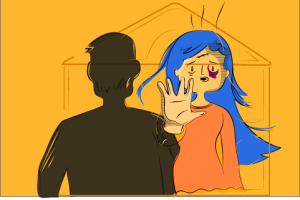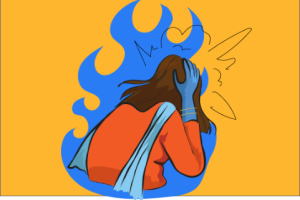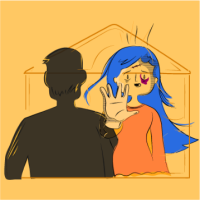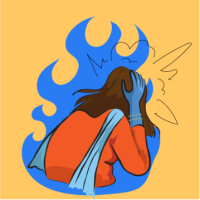Acid Attacks
Acid attacks, perpetrated against women and girls are used as a means to permanently scar the survivor – they are an extreme form of violence against women or girls. They are used because so much bearing is placed on the physical appearance of women and girls. Acid attacks, involving throwing liquid/arsenic, forcing someone to drink arsenic or throwing powder or forcing someone to inhale chemicals, are all punishable under Pakistan Penal Code, 1860. The worst part is that acid violence often remains invisible and goes unreported. Women are unsafe and are frequent victims, within their homes and also by their immediate family members.
Acid Attacks
Acid attacks, perpetrated against women and girls are used as a means to permanently scar the survivor – they are an extreme form of violence against women or girls. They are used because so much bearing is placed on the physical appearance of women and girls. Acid attacks, involving throwing liquid/arsenic, forcing someone to drink arsenic or throwing powder or forcing someone to inhale chemicals, are all punishable under Pakistan Penal Code, 1860. The worst part is that acid violence often remains invisible and goes unreported. Women are unsafe and are frequent victims, within their homes and also by their immediate family members.

Gender inequality and women’s position in the society, in relation to men, plays a significant role in these types of attacks. The most common reasons for attacks on women and girls in Pakistan include the refusal of marriage, denial of sex, and sexual rejection of men and boys. It is an expression of control over women’s and girls’ bodies (ASF Report). Conflicts regarding property issues, land disputes and inheritance have also been reported as motivations of acid attacks.

Acid violence is deliberate use of acid to attack another human being. The victims of acid violence are usually women and children, and attackers often target the head and face in order to maim, disfigure and blind. Acid attacks rarely kill but they can cause severe physical, psychological and social scarring, and victims are often left with no legal resources, limited access to medical or psychological assistance and without the means to support themselves.

Gender inequality and women’s position in the society, in relation to men, plays a significant role in these types of attacks. The most common reasons for attacks on women and girls in Pakistan include the refusal of marriage, denial of sex, and sexual rejection of men and boys. It is an expression of control over women’s and girls’ bodies (ASF Report). Conflicts regarding property issues, land disputes and inheritance have also been reported as motivations of acid attacks.

Acid violence is deliberate use of acid to attack another human being. The victims of acid violence are usually women and children, and attackers often target the head and face in order to maim, disfigure and blind. Acid attacks rarely kill but they can cause severe physical, psychological and social scarring, and victims are often left with no legal resources, limited access to medical or psychological assistance and without the means to support themselves.
In Pakistan, 150 acid attacks take place every year, as per reported cases only.
(Source: Acid Survivors Foundation )
Cases of Acid Attacks have been recorded since 1991. (Note that this does not include the number of unreported incidents)
(Source: Acid Survivors Foundation)
Acid Attack Laws (Pakistan Penal Code, 1860)
Section 336A (Pakistan Penal Code, 1860): Hurt caused by Corrosive Substance
Whoever with the intention or knowingly causes or attempts to cause hurt by means of a corrosive substance which is deleterious to the human body when it is swallowed, inhaled, comes into contact or received into the human body or otherwise shall be said to cause hurt by corrosive substance.
Section 336B (Pakistan Penal Code, 1860: Punishment for hurt by corrosive substance
Whoever causes hurt by corrosive substances shall be punished with imprisonment for life or imprisonment of either description which shall not be less than fourteen years and a minimum fine of one million rupees.
Explanation: In this subsection, unless the context otherwise requires, “corrosive substance” means a substance which may destroy, cause hurt, deface or dismember any organ of the human body and includes every kind of acid, poison, explosive or explosive substance, heating substance, noxious thing, arsenic or any other chemical which has a corroding effect and which is deleterious to human body.
In Pakistan, 150 acid attacks take place every year, as per reported cases only.
(Source: Acid Survivors Foundation )
Cases of Acid Attacks have been recorded since 1991. (Note that this does not include the number of unreported incidents)
(Source: Acid Survivors Foundation)
Acid Attack Laws (Pakistan Penal Code, 1860)
Section 336A (Pakistan Penal Code, 1860): Hurt caused by Corrosive Substance
Whoever with the intention or knowingly causes or attempts to cause hurt by means of a corrosive substance which is deleterious to the human body when it is swallowed, inhaled, comes into contact or received into the human body or otherwise shall be said to cause hurt by corrosive substance.
Section 336B (Pakistan Penal Code, 1860: Punishment for hurt by corrosive substance
Whoever causes hurt by corrosive substances shall be punished with imprisonment for life or imprisonment of either description which shall not be less than fourteen years and a minimum fine of one million rupees.
Explanation: In this subsection, unless the context otherwise requires, “corrosive substance” means a substance which may destroy, cause hurt, deface or dismember any organ of the human body and includes every kind of acid, poison, explosive or explosive substance, heating substance, noxious thing, arsenic or any other chemical which has a corroding effect and which is deleterious to human body.
How to Report Acid Attacks in Pakistan?
Immediately call the police (Helpline: 15) to report the incident, try to be as factually accurate as possible.
Take off the burnt clothes and head to (or take the victim to) the burn center of the nearest hospital (Helpline: 1122).
If possible, wash the wound for at least 30 mins with fresh water or stand under running water until help arrives.
Take along the burnt clothes or any other belongings with you to the hospital, they would be later presented as evidence.
Hire a legal team and lodge the FIR immediately (can be done either by the victim herself/himself or by a close relative).
Immediately call the police (Helpline: 15) to report the incident, try to be as factually accurate as possible.
Take off the burnt clothes and head to (or take the victim to) the burn center of the nearest hospital (Helpline: 1122).
If possible, wash the wound for at least 30 mins with fresh water or stand under running water until help arrives.
Take along the burnt clothes or any other belongings with you to the hospital, they would be later presented as evidence.
Hire a legal team and lodge the FIR immediately (can be done either by the victim herself/himself or by a close relative).

